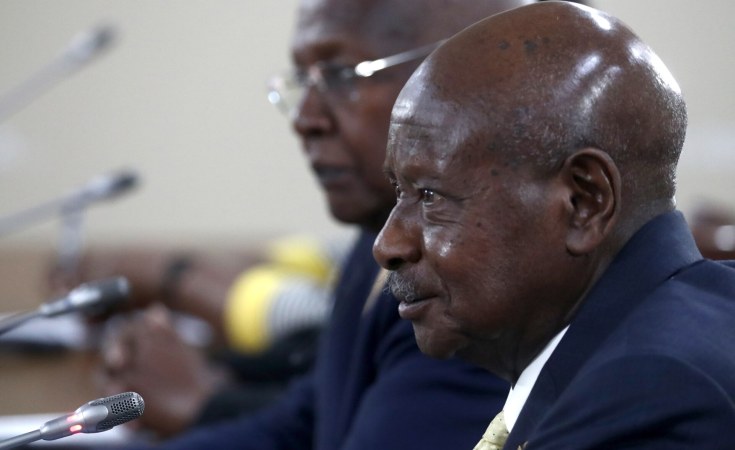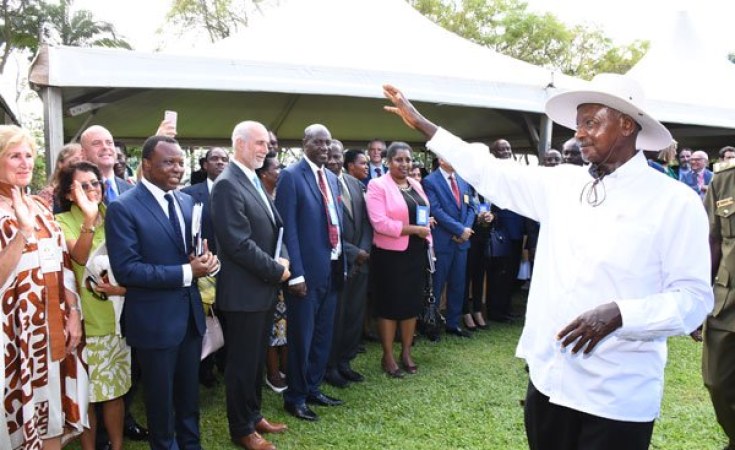 Uganda’s President Yoweri Museveni (file photo).
Uganda’s President Yoweri Museveni (file photo).
OPINION By Musaazi Namiti
In 2001, a day after winning his second presidential election, President Museveni addressed a news conference at Nakasero State Lodge, which was well attended by local and foreign journalists.
As journalists milled around the compound, waiting for the news conference to kick off, I saw John Nagenda, Mr Museveni’s senior advisor on media relations, chatting with Julian Marshall, the presenter of the BBC’s flagship news and current affairs show called News Hour.
I was only a couple of feet from the two men, and I heard Mr Nagenda tell Mr Marshall: “By the way, if you want to interview the President after the press conference, just let me know.”
Mr Museveni’s government then had precious little to worry about and hide. The election had been marred by violence and was disputed, but the NRM government did not have the myriads of critics it has today mainly because of its excesses. What is more, Dr Kizza Besigye, who was Mr Museveni’s main challenger in the 2001 vote, had not fled the country yet, citing threats to his life.
Mr Museveni was giving foreign journalists interviews freely and even had time to joke with them. For example, in 2002, in Zimbabwe, Lindsey Hilsum, then working for The Guardian, walked up to Mr Museveni for a comment about a summit of African leaders, which the President had been attending.
Mr Museveni told Ms Hilsum: “I have known you since 1986, and you still don’t have children! This is not good. You were in Rwanda during the genocide and now you are committing genocide against the name of Hilsum!” (Ms Hilsum said, in an article she wrote for The Guardian, that Mr Museveni deliberately digressed to try to parry questions he had been asked.)
Three journalists working for the Canadian Broadcasting Corporation (CBC) were kicked out of the country. (In 2006, Canadian journalist Blake Lambert was deported just as the presidential election was around the corner.)
Meanwhile, the Media Council of Uganda, the cousin of the Media Centre, the chief propaganda organ of the NRM government, is forcing local and foreign journalists to get accreditation in order to cover the election.
The council’s chairperson, Paulo Ekochu, said he had received several complaints from journalists about harassment by security forces but that the council could not protect them because it does not know who is a journalist and who is not.
It is a risible argument, but one thing is certain: There are now striking parallels between Uganda under the leadership of Mr Museveni and Zimbabwe under Robert Mugabe.
When Mr Mugabe started to muck up things, depriving White farmers of their land and giving it to Black Zimbabweans in what was officially called land redistribution, he turned against the media.
The situation went from bad to worse in 2002, according to Reporters Without Borders, a Paris-based non-profit that monitors press freedom. More than 30 journalists were detained and several foreign correspondents were forced to leave the country.
That is what is starting to happen in Uganda. Mr Mugabe and his cohorts had sanctions imposed on them by the European Union and the US. From what we have heard from the US State Department, Mr Museveni and his henchmen could go the same way unless they mend their ways.
Mr Namiti is a journalist and former Al Jazeera digital editor in charge of the Africa desk
Read the original article on Monitor.
